When the African Hebrew Israelites began settling in the Holy Land in 1969, Israelis viewed them with a mix of fascination and suspicion. One of the ways that the Hebrews endeared themselves to their neighbors was by entertaining them. They introduced African American music to Israel with their band, the Soul Messengers, and choir, the New Jerusalem Fire Choir. They performed for IDF troops during wartime. They literally sang their way into the hearts of many Israelis.
In addition to performing live shows around the country, Hebrews have competed on televised singing competitions since the format was introduced to Israel in the 1990s. This month, Ketreyah Fouch has used her charming smile and big voice to advance to the finals of “The Four.” Despite some controversy over her decision to audition for another reality show while still appearing on “The Four,” Ketreyah is considered the favorite to win the competition on Wednesday night. [Update 11/15/18: In a public vote Ketreyah came in second—to the consternation of her many supporters in the African Hebrew Israelite community. “Simple people, can’t handle extraordinary,” one wrote on Facebook.]
Before the winner is crowned, let’s take a look back at previous reality television show contestants from the African Hebrew Israelite community and how they fared.
Gavriel and Eitan “Eddie” Butler / Eurovision / 1999
Brothers Gavriel and Eitan “Eddie” Butler were the first African Hebrew Israelites to make it big in Israel. They represented the country at the Eurovision international song competition in 1999—several years before members of the community would receive permanent residency status. As half of a racially diverse group called Eden, they performed “Yom Huledeth (Happy Birthday)” and earned a respectable fifth-place finish. They may not have won, but their song did; it is still played regularly, at high volume, at birthday parties in Israel.
Eddie Butler / Eurovision / 2006
Eddie represented Israel at Eurovision again, in 2006, as a solo act. Backed by three African Hebrew Israelite singers, he performed “Ze Hazman (Together We Are One).” The New York Times called the song “a soulful, English-Hebrew anthem he wrote that reflects the influence of his years singing” with community musical groups. Alas, the song didn’t resonate with voters, and Eddie came in second-to-last place.
Ahtaliyah “Tali” Pierce / “The Voice Israel” / 2013
Despite just barely making it onto the show, Tali did quite well on “The Voice Israel,” advancing to the semifinals with lots of coaching from judge Sarit Hadad. The producers milked a plot line involving her father, with whom she had a strained relationship. Sar Ahmadiel, the community’s minister of information, was conflicted about his daughter’s participation on the show, telling Hadad: “Tali is part of a new world…Beyoncé is not an idol for us.” (He eventually came to a taping.) After her stint on the show, Tali toured the country with a production of the musical “Hairspray.” (Read my article about Tali’s musical journey in Haaretz.)
Avishachar “AJ” Jackson / “X Factor Israel” / 2013
Avishachar appeared on one of Israel’s earliest singing competitions, “Bravo,” with Yokai Edwards (see below) in 1999. The two were runners up, but sadly, there are no clips to be found online. Many years later he appeared on the first season of “X Factor Israel.” He gave a thrilling performance of Alicia Keys’s “Girl on Fire” but was eliminated in the second week. (Avishachar and his wife, the Hebrew model Yoshevah Jones, just welcomed a baby into the world. Mazel tov to them!)
Mirage / “X Factor Israel” / 2013
This group of singers and rappers from Dimona—including Zakai and Michel—competed against Avishachar on “X Factor Israel.” The group never really meshed, ensuring an early exit from the show. But kol hakavod to them for using their fleeting fame to raise awareness about the Israel Multiple Sclerosis Society.
Shavakeyah Baht Israel / “The Next Star” / 2016
A renowned jazz and blues singer who has performed with Shalom Hanoch and other Israeli musical icons, Shavakeyah auditioned with a musician named Avi Eilot to represent Israel at Eurovision 2016. “Everyone who wants to be a singer in the Hebrew community goes through Shavakeyah,” one of the judges said. “Shavakeyah is the biggest pearl of the Hebrews.” Another added: “She’s the big mama.” In the end, a singer named Netta Barzilai prevailed, and, astonishingly, she went on to win Eurovision with her ridiculous song “Toy”—the fourth time Israel took the top prize in the history of the competition. Shavakeyah still wows audiences at festivals and shows around the country. (Click on the image below to watch Shavakiyah and Avi perform “Don’t You Ever Leave Me.”)
Yokai Edwards / “The Next Star” / 2016
Yokai auditioned for “The Next Star” the day after one of his mothers, Acote Yaheerah, passed away. (The African Hebrew Israelites practice polygamy.) He asked the judges to not pity him and then proceeded to deliver a stirring performance of “Angels” by Robbie Williams. He made it past the audition, but in a sign of how much talent there is in Dimona, one of the judges remarked: “From the Hebrew community, I know much, much better ones who sing much, much better than him.” Since appearing on “The Next Star,” Yokai has continued to busk, perform at weddings and bar/bat mitzvot, and record original music. A video of him singing on the streets of Tel Aviv while an elderly man gets out of his wheelchair and starts dancing went viral. (Click on the image below to watch Yokai’s performance of “Angels.”)
Ketreyah Fouch / “The Four” / 2018
When Ketreyah was growing up in Dimona, she would listen to her mother Zehorah rehearse and perform with her group, Starlight. According to Elisheva Baht Israel—one of the most accomplished musicians from the African Hebrew Israelite community—Ketreyah didn’t come into her own as a singer until after her mother passed away from cancer in 2016. “She was just a bedroom singer,” Elisheva told me. “She never expressed that she really wanted to sing, but after Zehorah passed it’s like Zehorah stepped into her mind to come on out and do what her emah [mother] loved to do.” Whenever Ketreyah performs on TV, “we say Zehorah is singing tonight.” Elisheva said Ketreyah has really blossomed as a singer and, even if she doesn’t win tonight, “we really want to back her because she could go international.”
Bonus: Holy Land Singers / early 1990s
The setting was spectacular: the Nimrod Fortress in the Golan Heights. An all-star collection of singers and musicians from the African Hebrew Israelite community—including Elisheva and Shavakiyah—performed original songs and classics like Bob Marley’s “Get Up, Stand Up.” The concert was broadcast on Israeli TV and lives on on the Internet. Watch it below!
Todah rabah/thank you very much to Acote Elisheva for help compiling this list.

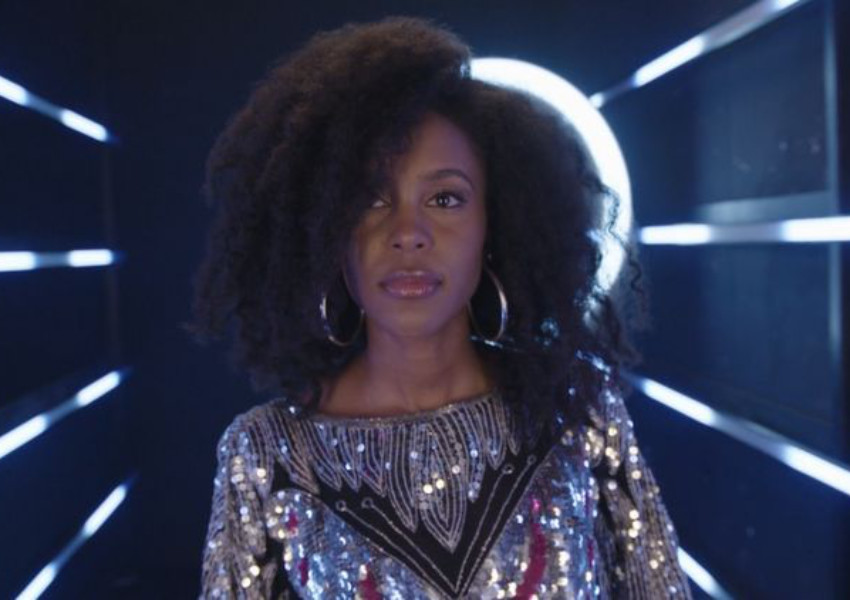
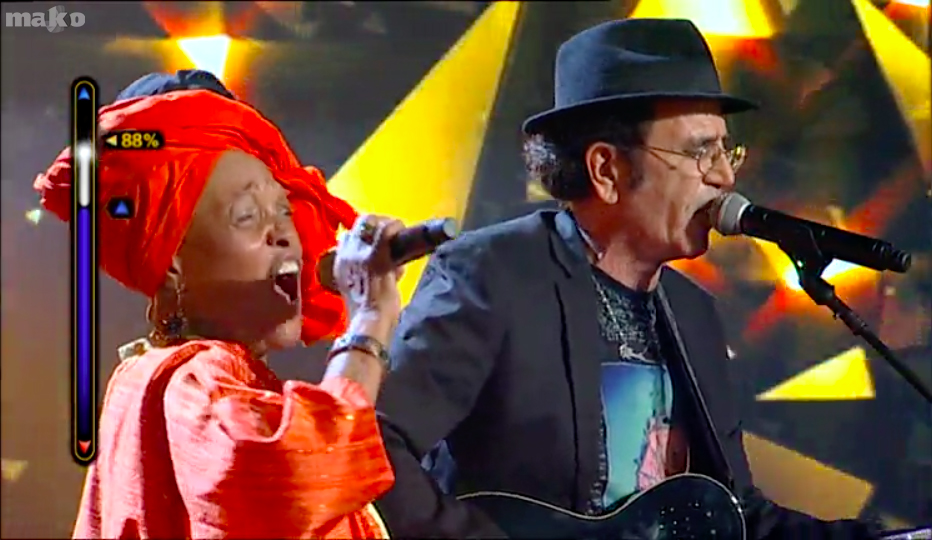
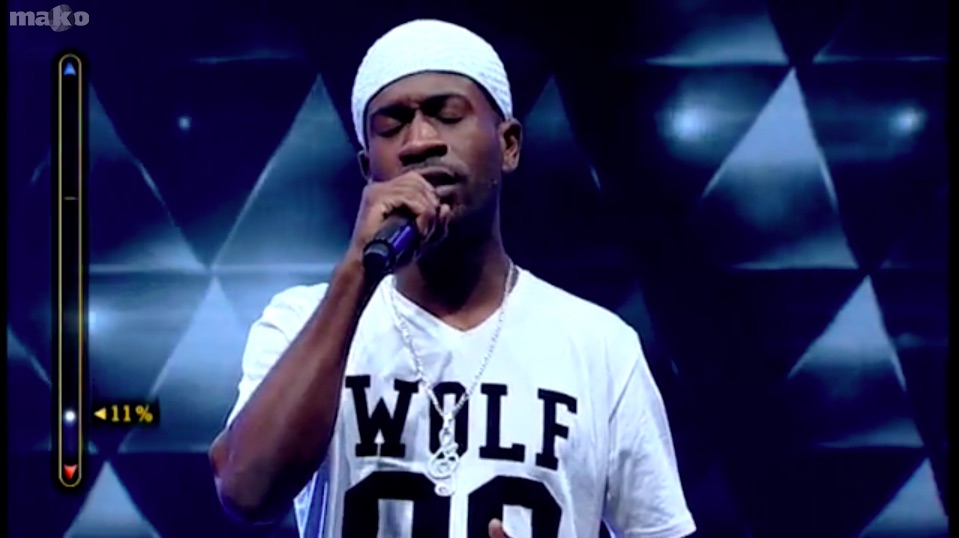
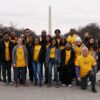
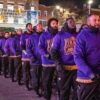
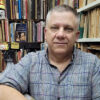
When it comes to music and stars that’s their world of rock and R and B and judging unfair but we have our own world and our world is please the yah of creation make the mountains move and part the sea Moses tuned in the elements and let yah be the judge who rules all
Yah khai,
Such a glorious blessings to see our you daughter in the midst of the people. To grow in the image of her Emma. Her Emma was a specious soul you would have want to encounter and meet.
I am proud of all my brothers and sisters who’s talents have roamed the souls in Israel and the world.
Her emma is smiling and full of joy with our ancestors
Yokhai and Avishakhar were actually the the first to perform on the show called Bravo coming in second place when they were about 13 and 14 yrs old. Around 1998. They did a wonderful job under Ema Elishevahs direction
True, and I noted that in the section about Avishachar’s appearance on “X Factor Israel.” If video of the two of them on “Bravo” exists, please send it my way.
Thank you for sharing this history
Thanks for such an accurate, informative, account of one aspect the musical resume of our community. I am sure that the most recent success of Keyreyah is serving as motivation for other unknown talented youth in our community. All I can say is there is more to come, so stay tuned, again great piece.
Todah for reading and for your kind words!